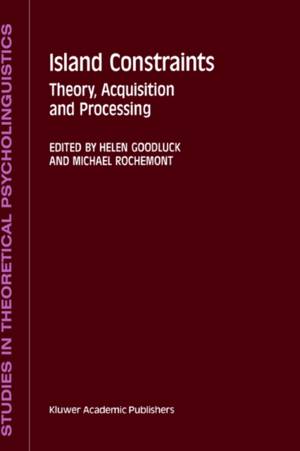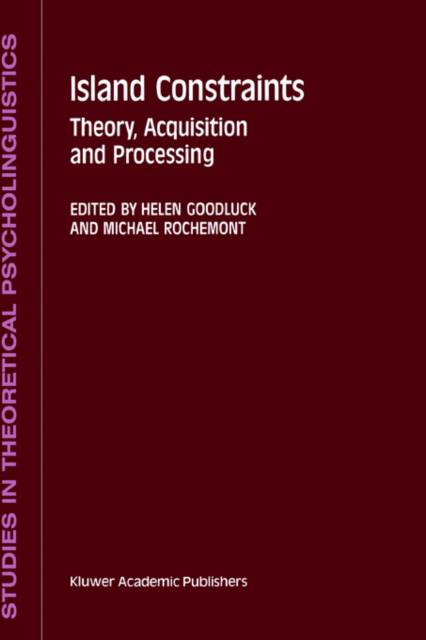
- Afhalen na 1 uur in een winkel met voorraad
- Gratis thuislevering in België vanaf € 30
- Ruim aanbod met 7 miljoen producten
- Afhalen na 1 uur in een winkel met voorraad
- Gratis thuislevering in België vanaf € 30
- Ruim aanbod met 7 miljoen producten
Zoeken
Island Constraints
Theory, Acquisition and Processing
€ 349,45
+ 698 punten
Omschrijving
constraints', which serve to block the association of antecedent to gap under specific syntactic conditions. Of the restrictions identified by Ross and others, the ones we will discuss here are the Complex NP Constraint, exemplified with a relative clause in (3b) and with a nominal complement in (4a), the Subject and wh Island Conditions (Chomsky, 1973) in (4b, c) respectively, and the Adjunct Island Condi- tion (see Huang, 1982's Condition on Extraction Domain), illustrated in (4d, e). (4) (a) *John, Mary made the claim that Sally plans to recommend_ for ajob. John, Mary claimed that Sally plans to recommend _ for a job. As for John, Mary heard the rumor that Sally intends to marry him. (b) *John, an article about _just appeared in the newspaper. As for John, an article about him just appeared in the news- paper. (c) *Bill, I wonder who likes_. As for Bill, I wonder who likes him. (d) *The heat, we left early because of _. As for the heat, we left early because of it. (e) *The money, I lied so that I could keep_. As for the money, I lied so that I could keep it.
Specificaties
Betrokkenen
- Uitgeverij:
Inhoud
- Aantal bladzijden:
- 480
- Taal:
- Engels
- Reeks:
- Reeksnummer:
- nr. 15
Eigenschappen
- Productcode (EAN):
- 9780792316893
- Verschijningsdatum:
- 31/10/1992
- Uitvoering:
- Hardcover
- Formaat:
- Genaaid
- Afmetingen:
- 156 mm x 234 mm
- Gewicht:
- 861 g

Alleen bij Standaard Boekhandel
+ 698 punten op je klantenkaart van Standaard Boekhandel
Beoordelingen
We publiceren alleen reviews die voldoen aan de voorwaarden voor reviews. Bekijk onze voorwaarden voor reviews.










